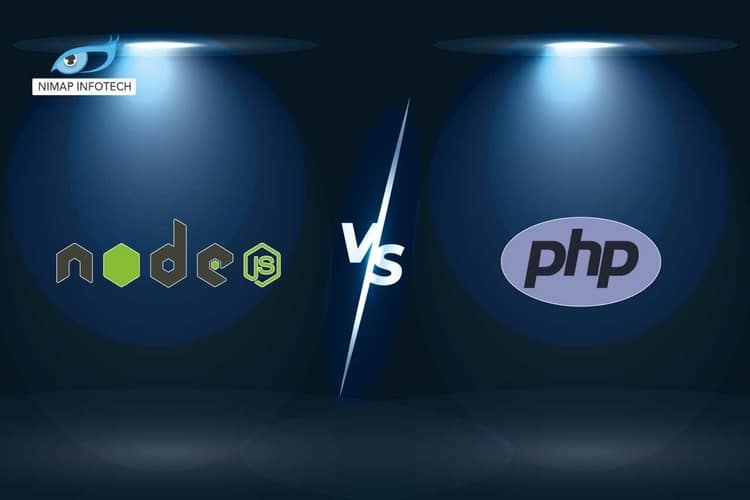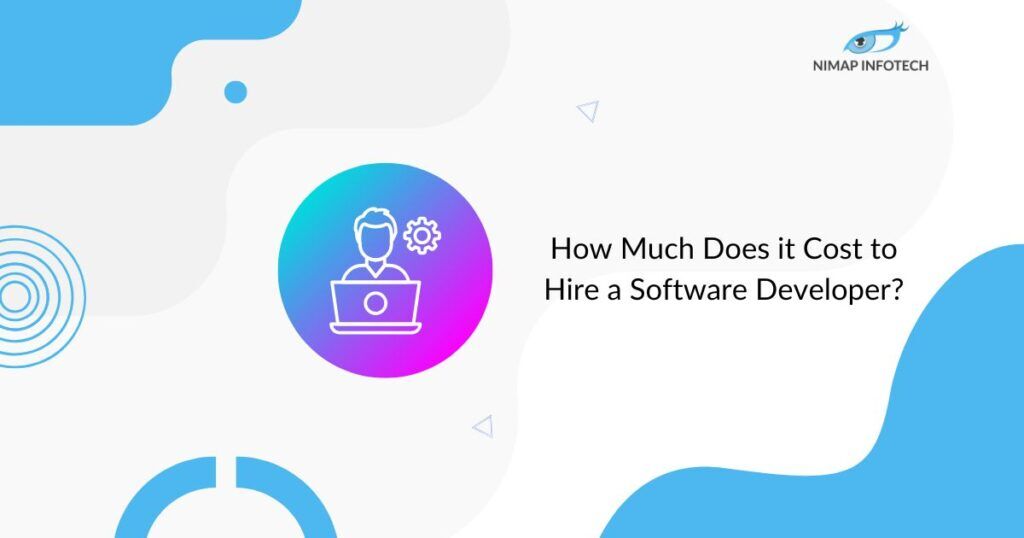We are going to discuss two technologies namely PHP and Node.js. What are the similarities and differences between these technologies? When you can use these technologies. What are the applications?
Table of Contents
ToggleOverview- Nodejs vs PHP
Both PHP and NodeJS provide developers and programmers with powerful backends. “Developers use these backends to create dynamic websites falling under the same category. PHP, a well-known server-side language, serves the purpose of server-side scripting.” However, because of nodejs it is now possible to use javascript on server-side programming aspects also. Node.js made its public debut in 2009, paving the way for websites powered entirely by JavaScript in both the front-end and back-end environments.
PHP
PHP, commonly known as Hypertext Preprocessor, is a scripting language dedicated exclusively to web development. Rasmus Lerdorf created it in 1994, giving PHP a mature history of 26 years. Ever since this language has evolved many times and has become the first choice for the development of various CMSs such as WordPress, Joomla and Drupal. According to the latest statistics from Statista, PHP powers over 80% of all websites worldwide.
NodeJS
Node.js, built with Chrome’s JavaScript V8 Engine, is an open-source, cross-platform JavaScript runtime environment. It does not require a sole web browser to execute and handle JavaScript code. It can execute JavaScript outside of the browser without using it. The main advantage of using nodejs is that it allows developers to take advantage of asynchronous programming. This means that developers do not have to wait for the function or procedure to execute. The code executes as a whole, not in a linear, line-by-line manner. While the percentage of websites developed using Node.js is relatively low at 0.4%, it’s a rapidly growing technology gaining popularity among developers and web programmers.
Nodejs vs PHP differences
Runtime environments
JavaScript and PHP statements can be directly embedded into HTML statements, but they require an interpreter for processing and execution. PHP has been making use of the powerful ZEND engine to process php statements. NodeJS on the other hand makes use of Chrome’s V8 javascript engine in
order to process and execute javascript statements.
Concurrency
PHP operates as a synchronous language, executing statements linearly. While there are asynchronous execution techniques available through certain APIs, PHP predominantly follows a synchronous processing and execution model. In contrast, Node.js is asynchronous, enabling the execution of all statements and functions in a single pass, without waiting for functions to return and resume execution. It is because of this reason NodeJS is faster and high performance than PHP.
Modules
PHP utilizes module installation technologies like the PEAR framework and a redistribution system for reusable PHP components.
NodeJS on the other hand comes bundled with a package manager called as NPM (Node Package Manager).
Scalability
PHP enjoys robust support within major content management systems and platforms, including WordPress, Drupal, Joomla, and numerous others. These tools are versatile, serving to build blog-based systems for disseminating information and knowledge to the public. Additionally, they can facilitate the management and development of e-commerce websites through the utilization of various available plugins and tools. NodeJS on the other hand serves well to create scalable dynamic solutions that deal with numerous I/O operations and tasks. It has been possible to scale NodeJS applications on multi-core systems, with increased efforts.
Web Servers
PHP runs efficiently on an Apache web server. It can also run on an IIS or internet information server offered by the Windows platform. NodeJS on the other hand does not require a web server in order to run. NodeJS runs in its own environment powered by the JavaScript V8 Engine.
Performance
Node.js earns its reputation as a high-performance environment primarily due to its asynchronous data processing model. However PHP has also evolved in this direction only and with the help of libraries such as ReactPHP, it is possible to use in event-driven programming also.
Also Read: Django vs Laravel vs NodeJS
When Should You Use PHP or Node.js?- PHP vs Nodejs
Both of the above technologies are back-end technologies, but Node.js can offer you a major advantage. If you’re looking to have a totally JavaScript-based technology stack that offers you both the front and back ends. If you’re trying to choose between various back-end technologies or are into building an entirely new stack-based solution, it helps to go into a little more detail.
When to use PHP
Centralized Server:
In case your developers or programmers have no plan on scaling your application that is going to work across multiple servers, then you can easily use the LAMP (Linux, Apache, MySQL and PHP) stack. This can easily change depending on your project requirements as well as growth.
Portability:
PHP is a highly portable language that works also on cross platforms. The cheap costs of web hosting and the availability of the servers for running and executing PHP are comparable to none. PHP easily runs on almost any platform that a dedicated Apache server, IIS and a supported database system installed. This makes PHP applications portable as well as much easier to deploy.
When to use Node.js
Same Language across the Stack:
Node.js is a great choice for you to use if your project involves multiple software stacks and technologies, for example, MEAN stack ( MongoDB, ExpressJs, AngularJs.), dynamic single page-based applications, as well as server-side technologies and Front end technologies such as Angular Js, Backbone.Js or React Js. This makes it easier for developers to have the same language (Javascript) across your entire and whole stack.
Realtime Data:
Node.js is great for many applications that require the usage and implementation for processing of real-time data. However, I would be sceptical about using Node.js for many banking and financial applications as Javascript itself is not very reliable and secure when it comes to numbers. Since everything is either an integer or float, there isn’t a significant distinction between data types. It’s advisable to use a type-safe language when working on financial applications. It requires a lot of computing and processing power or a library that is reliable enough.
Speed:
Node.js is going to be much faster than PHP when it comes to execution speed. Node.js is a superior choice for speed-driven applications like browser-based multiplayer games and chat applications compared to traditional PHP.
| NodeJS | PHP |
| Node JS is based on open-source technology | PHP is also Open source technology |
| It is beneficial to scale up web servers | PHP is used for web development on the server side |
| Node JS is much faster than PHP | PHP is slower than nodeJS |
| Node JS can be used with several other technologies | PHP can only be used with HTML, CSS and javascript |
| Node js is used for high-performance web scaling and designing | PHP is server-side development for the web. |
| Node JS is asynchronous in nature | PHP is synchronous in nature. |
| Node.js is employed to scale server-side development | PHP is used in many Content management systems |
Read More: PHP vs Python
Conclusion
So you see we have discussed the various similarities and differences between PHP and NodeJS (PHP vs Node.js). It comes down to what your preferences are and what features your applications should have. If you want to hire nodejs developers or hire php developers then do contact us at enquiry@nimapinfotech.com with your requirements.
Author
-

Sagar Nagda is the Founder and Owner of Nimap Infotech, a leading IT outsourcing and project management company specializing in web and mobile app development. With an MBA from Bocconi University, Italy, and a Digital Marketing specialization from UCLA, Sagar blends business acumen with digital expertise. He has organically scaled Nimap Infotech, serving 500+ clients with over 1200 projects delivered.
View all posts







